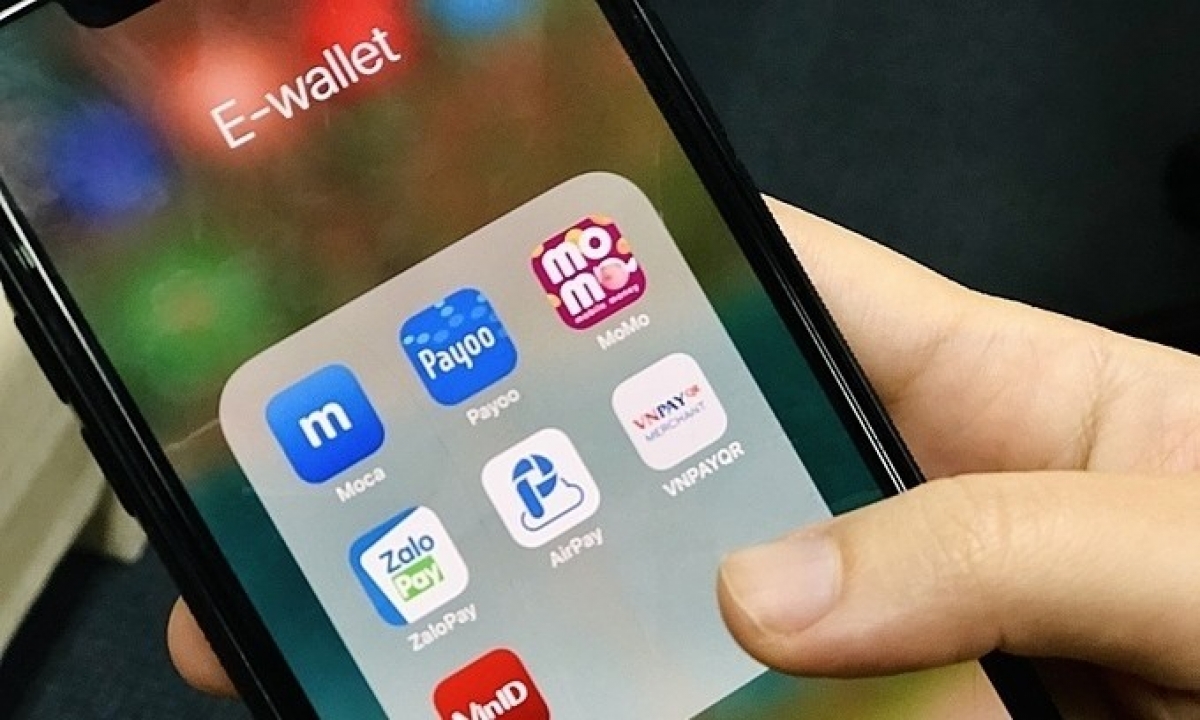Vietnam sees boom in e-wallet market
Vietnam records one of the highest e-payment growth rates in the world, about 35% per year.

The electronic wallet, in particular, represents a modern, convenient payment option.
“I think I’m addicted to using e-wallets of various kinds, which I find very convenient. Each type has its own advantages. I use MoMo, for example, to buy phone cards because the app offers lots of discounts and allows money to be transferred easily from one phone number to another. Using an e-wallet is very beneficial for small transactions if you know how to use it properly," said Nguyen Viet Anh, one of the many urban young people who are familiar with e-wallets.
She conducts almost all her financial transactions - purchasing goods in a store or online, booking travel tickets, and paying utility bills – with an e-wallet.
Vietnam’s e-wallet market saw robust growth between 2015 and 2020 and is expected to continue this rapid growth in the next 5 years, according to IMARC, the International Market Analysis Research and Consulting group.
By the end of 2019, Vietnam had 32 non-banking organizations that were authorized by the State Bank to provide e-wallet services. Most of them provide e-wallet services, online payment gateways, support for money collection and payment, and electronic money transfers.
MoMo, Vietnam’s most popular e-wallet, has more than 12 million users, 10,000 partners, and more than 100,000 points of sale. It has partnered with banks to increase the number of customers and created more points of sale.
Nguyen Ba Diep, Executive Vice Chairman and Co-founder of MoMo, said, “It’s not easy to change consumer habits. We’re glad that there are many e-wallet providers and the Government is supporting the trend. We began this service more than 10 years ago and now MoMo has a developed ecosystem. We’re happy that more and more partners are agreeing to deploy our electronic payment services.”
In Vietnam, the e-wallet market has both foreign and domestic suppliers rushing to join the trend.
Financial technology companies have launched products like MoMo, VNPayQR, NextPay, Payoo, an Pay365.
Domestic banks introduced products like Bank Plus, a cooperation between telecom giant Viettel and MBBank, Timo by VPBank, and MEED by Maritime Bank.
Telecom enterprises Vinaphone, Viettel, VTC, and FPT have launched VNPT Pay, ViettelPay, VTCPay, and Pay FPT. Even Zalo, which provides messaging services, has made a move, launching ZaloPay.
As a late comer to the market, Zalo leveraged the 100 million users on its social network to convince retail partners to accept its ZaloPay e-wallet.
Zalo intends to have 1,000 points of sale this year, including very small points like coffee shops and grocery stores.
But convincing users to conduct transactions at these 1,000 points is a headache, said Truong Cam Thanh, CEO of ZION, the owner of ZaloPay.
“Around 30%-40% of adults in Vietnam have bank accounts but a small number of them use their bank accounts to make electronic payments. Putting cash in bank accounts won’t be able to activate electronic payments. This is one of the biggest hurdles,” said Thanh.
MoMo, Moca, ZaloPay, AirPay, Viettel Pay, and Payoo are now the best known e-wallets in Vietnam.
MoMo, Moca and ZaloPay have advantages in payment at the counter. Moca holds Grab service booking. AirPay is the e-wallet with the largest number of users (Shopee). Payoo is a platform for making payment for services like water, electricity, and internet.
Every e-wallet has its own advantages, but none is powerful enough to dominate the market.
Nguyen Ba Diep, Deputy Chairman of MoMo, says he believes e-wallets will prosper in Vietnam in one or two years, when only 3-5 wallets will still exist.
The key is a state policy strong enough to make e-wallet providers, banks, and retailers feel they are all benefitting, said Diep.
“The state should encourage businesses to use e-payment and recognize its value at a more macroscopic level. For example, if 30% of the revenue of a company is received digitally, the company should get a tax reduction,” said Diep.
CEO Thanh of ZaloPay has called on the government to set up an open mechanism to help e-wallets develop. New demands will appear in the near future - post-paid service, peer-to-peer loans, credit loans, insurance, and more, so there should be ‘sandboxes’ where businesses can try new products and services to more effectively serve users, according to Thanh.
